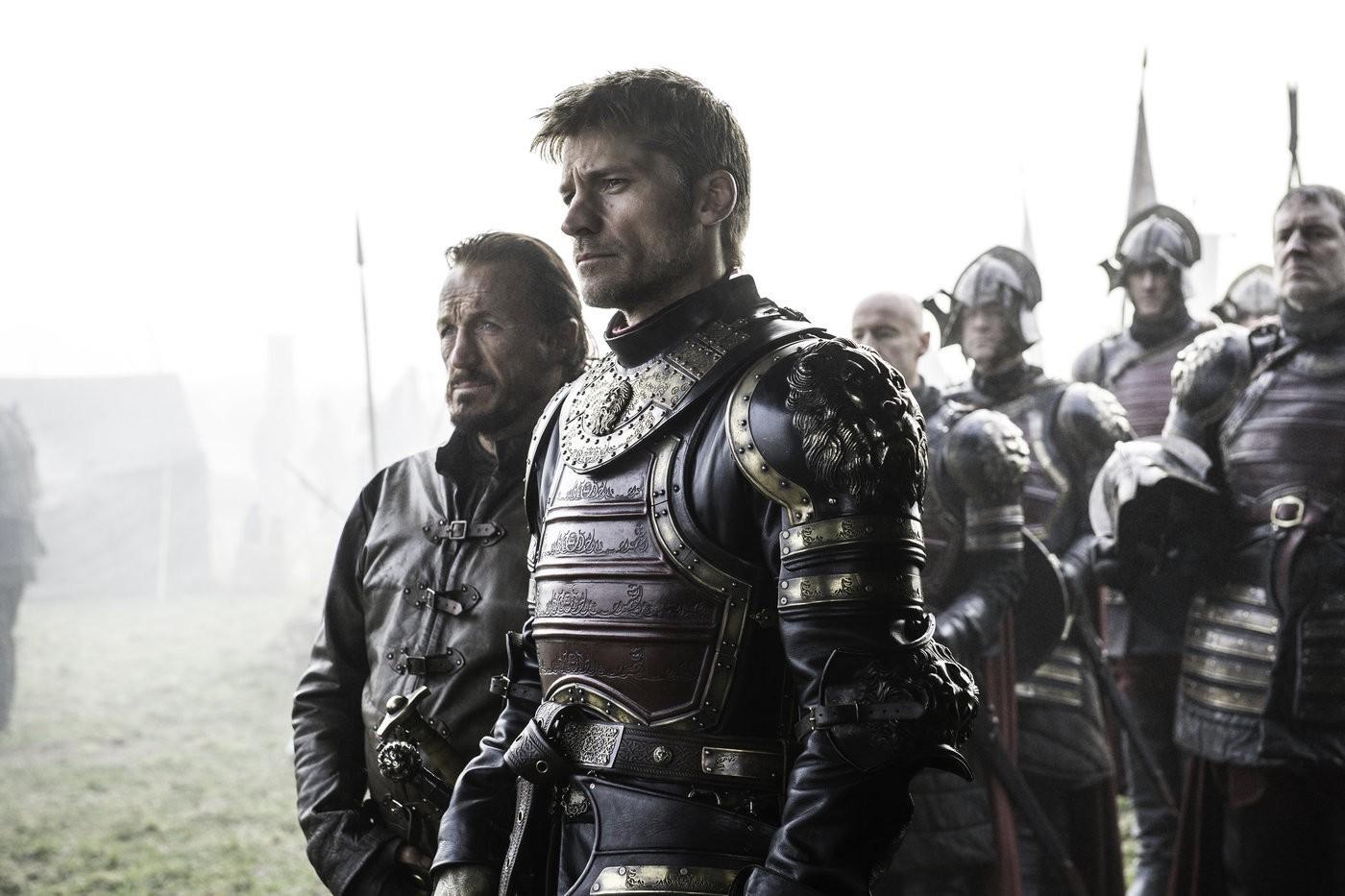
Any war with five sides, thousands of soldiers, and untold civilian casualties is bound to leave a few loose ends. And for a conflict that for all intents and purposes ended in the Season 2 finale of Game of Thrones — when half the cast was still alive, Tyrion was on a different continent, and Cersei still had long, flowing locks — the War of the Five Kings looms accordingly large over the show. Despite being an episode in which one major character makes a surprise return and another gets stabbed in the abdomen, “The Broken Man” mostly just shows us the lay of the land. As the title suggests, it’s … not great, Bronn.
“It’s never too late to stop robbing people, to stop killing people, and start helping people,” Ian McShane’s septon — nameless, in the grand tradition of wise, doomed symbols everywhere — tells a skeptical Hound. It’s a nice sentiment. Unfortunately, the septon’s entire short story of a subplot exists to prove him wrong.
Sandor Clegane, it turns out, fell right off that grassy hillside and onto his own two feet. He’s been spending the past few months (weeks? Years? Clear timelines are not this show’s strong suit) camped out with a pacifist preacher, played with appropriate charisma by Al Swearengen himself. His corner of Westeros may have neither tits nor dragons, but it does have some things in rather short supply these days: vegetables, new construction, and optimism.
McShane’s character renounced a life of gnarly war crimes for all this, and he thinks Sandor can, too. Unfortunately, war crimes have a habit of catching up to people; the Seven Kingdoms may not have much justice, but they’ve got plenty of people out for blood. It’s not clear who, exactly, staged the septon’s makeshift execution; I’ll just say I find it curious that the show went out of its way to establish that the Hound was in Brotherhood territory at the time and leave it at that. But it doesn’t seem like a coincidence that the septon brought up his past sins moments before his death. He may think he’s left the war behind him, or that he can put it there by focusing on doing good in the present. His victims don’t have that luxury.
Neither do the people of the North, who aren’t as quick to rally to the Stark name as Sansa hoped they would be. Lady Lyanna Mormont seems to be doing an exceptionally good job with the challenge of watching over the people of Bear Island at straight-up 10 years old. (God knows that being a preteen is hard enough on its own.) But the only reason she’s even in that position is because Robb got her mother killed. Ditto Lord Glover, who lost subjects and several family members to the eldest Stark’s romantic streak.
Is it any wonder that the Blackfish is holding on to Riverrun, and the last of his family’s dignity, with everything he’s got? Jaime offers him the option of burying the hatchet, and the figure of speech and weapon itself both figure prominently in the episode’s closing moments. For the Blackfish, though, that was never a choice. His niece and great-nephew were slaughtered; his house is decimated. One more dead Tully doesn’t make a difference to him at this point. Why not make the Lannisters feel a small fraction of the pain he’s stuck with, even if it’s a lost cause?
And so Game of Thrones continues to express extreme ambivalence about righteous war, even as many of its characters prepare to wage it. Ultimately, Jon and Sansa can’t get Lady Mormont on their side by arguing that she should fight. Davos succeeds by arguing that she has to. Reclaiming Winterfell is a hard and nasty task, one that’s sure to leave its fair share of grieving uncles and orphaned children and survivors hellbent on revenge. Still, it’s a necessary one. Winter is coming, and it won’t wait for Westeros to begin the long, slow process of recovering from war.